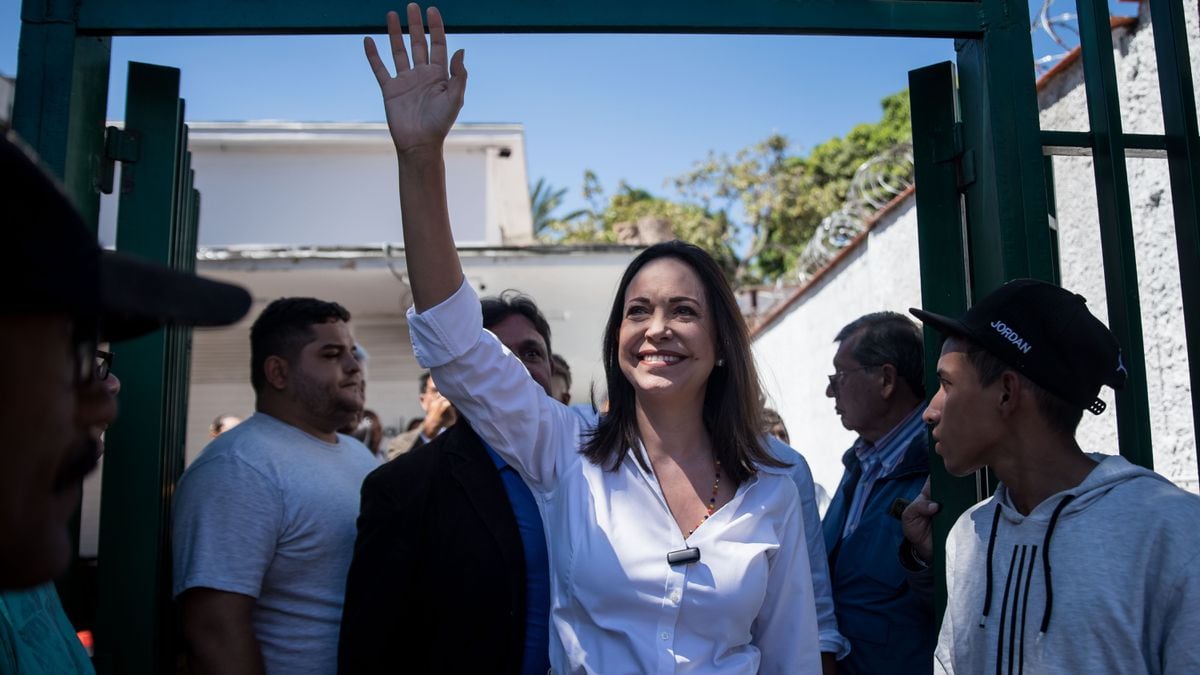In Venezuela, two realities are going to collide this election year.
Chavismo, which controls the government and justice apparatus, faces the presidential elections on July 28 with the certainty that it will once again win and continue in power, as has happened since 1999. The ruling party has cleared the way for the president Nicolás Maduro does not encounter any obstacles and is re-elected for another period, with which he will overcome the years that a myth like Hugo Chávez governed.
The opposition understands that there is some fiction in the idea that these are free and fair elections, but even so it does not want to make it easy and in the coming months it will deploy a campaign with the support of the international community to demand that Chavismo respect a highly questioned process of which you feel like a winner before even starting.
Maduro, who has very low popularity, has been campaigning for months.
The president led a referendum to demand part of the territory of neighboring Guyana as his own.
It was a way to instil a nationalist spirit that would improve his image as a leader.
He didn't get it.
Venezuelans hardly came out to vote for an issue that did not keep them up at night either.
They did do so, however, to choose the opposition candidate, María Corina Machado, in October of last year.
Machado prevailed over the rest of the anti-Chavistas in primaries that exceeded all expectations, including those of the Chavista leaders.
There were lines at the voting centers and Machado won with more than 90% of the votes.
It was evident that it represented the birth of a real alternative to Chavismo.
But the Government is not going to allow under any circumstances for her to challenge Maduro for power, whom she leads in most polls.
Machado has been disqualified for 15 years for her alleged support of international sanctions imposed by the United States on Venezuela and her support for Juan Guaidó as interim president after Maduro began a second term following elections considered fraudulent by Washington and the European Union.
Machado, in January, said that she was not aware of any disqualification pending against her, but the Supreme Court responded that she is disqualified from holding any public office.
The opponent is convinced that, without her participation, the elections are invalid.
“I received a mandate.
The mandate to lead this country to clean and free elections.
"I am committed to going to the end with this," she said after knowing the electoral date, which was announced on the same day of Chávez's death and coincides with his birth, in case there is any doubt about who did it. selected.
“Just as they left the negotiation,” she continued, “now they want to get out of the electoral route because they are afraid.
“My commitment is to achieve clean elections, and with the strength of the people we will make it possible.”
Institutional and economic crisis
At least publicly, Machado still trusts in the democratic path that the international community has been working on in recent years.
Washington, Brussels, France and Colombia have tried to convince Chavismo that the best way to fix the serious institutional and economic crisis in which the country is immersed is to reach a great national agreement that includes Chavismo and the opposition.
The first step of that plan was to hold competitive elections, where non-official parties had real chances of victory.
Maduro seemed to accept these scenarios as good when signing the Barbados agreements, in October 2023, where he committed not to make any excuses and to hold elections in the second half of the year, in addition to enabling opponents who were expressly prohibited from participating, such as Machado herself or Henrique Capriles, who in his day came close to defeating Chávez.
It seemed that the dialogue had entered a happy stage of understanding.
The president of the United States, Joe Biden, wanted to take further steps and provisionally lifted the sanctions on oil and gold, a way of allowing the Venezuelan government to participate in the official markets that until then had been banned.
Caracas then released five political prisoners.
In 24 hours, Venezuelan politics moved more than in the entire previous year and a half.
Two months later, Washington released Alex Saab, whom he had detained and imprisoned for allegedly being Maduro's front man.
However, all these moves have proven futile in the end.
The Government has not and will not let Machado confront Maduro under any circumstances.
In this regard, the Chavista leaders have been inflexible.
As if that were not enough, they have started a campaign of arrests of opponents, activists and even ordinary citizens.
The accusation?
An alleged attempt to assassinate Maduro that leads to a coup d'état.
The White House has already announced that the sanctions will return after failing to see that Caracas has taken steps towards democracy, which basically consisted of fair and competitive elections being held.
Follow all the information from El PAÍS América on
and
X
, or in our
weekly newsletter
.

